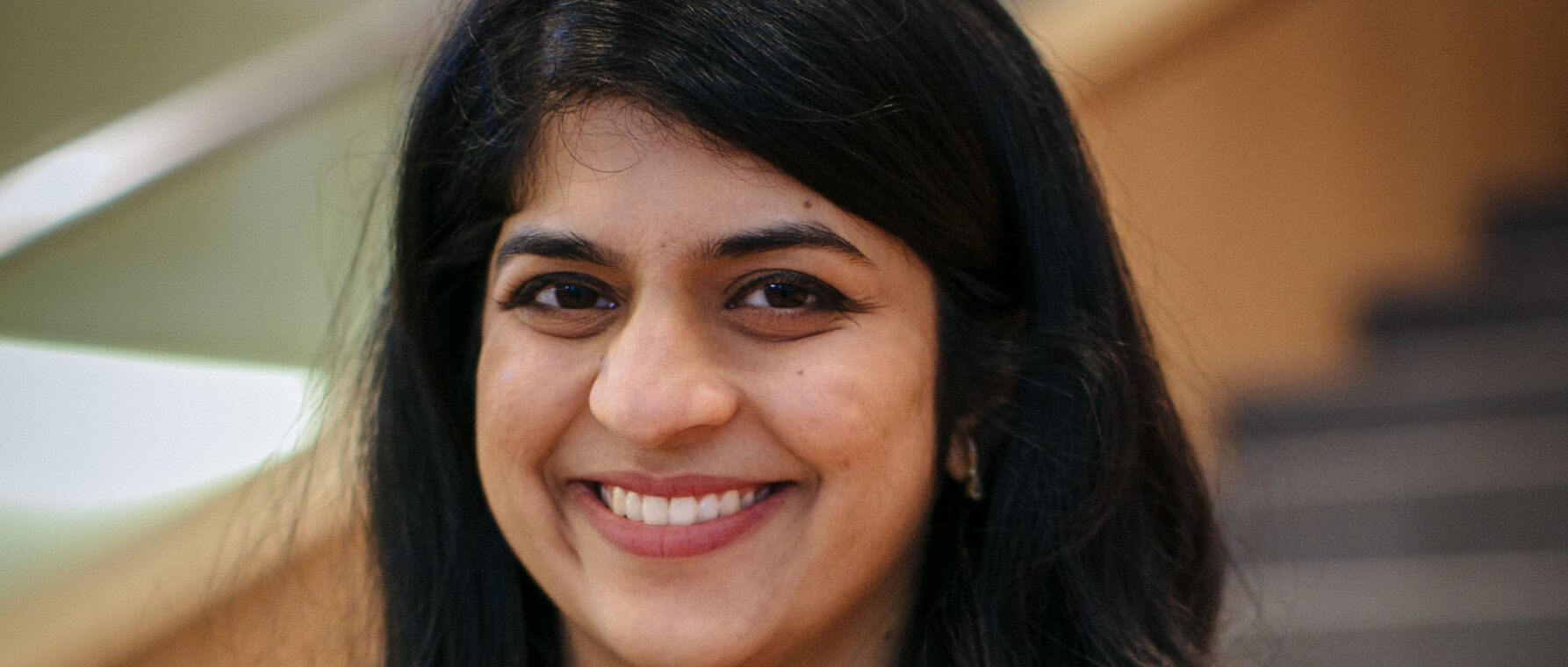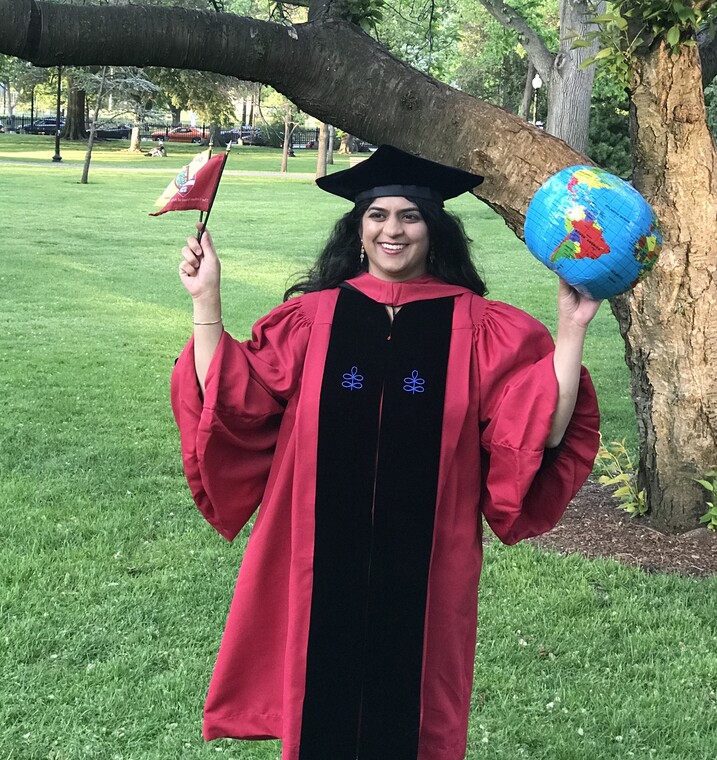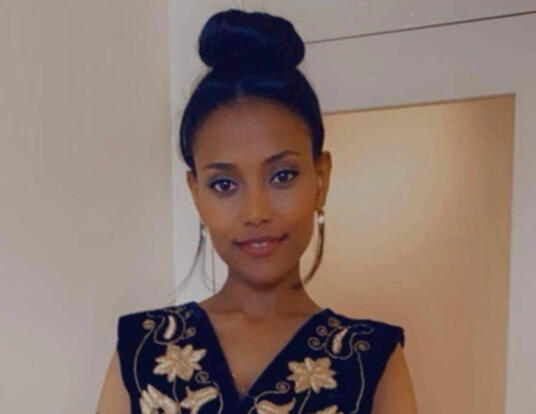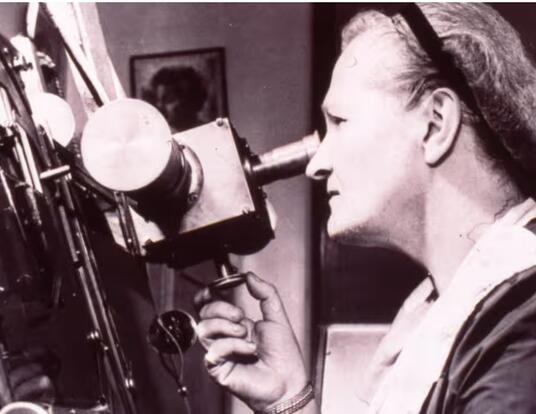Transforming India's Model of Maternal Care
GSAS Voices: Janhavi Nilekani, PhD ’18

Throughout its 150th anniversary year, GSAS is foregrounding the voices of some of its most remarkable alumni and students as they speak about their work, its impact, and their experiences at the School.
Janhavi Nilekani founded the Aastrika Foundation in 2019, just one year after graduating from GSAS with a PhD in public policy. Her vision for the organization is simple but audacious: to create in India, the world’s second-largest country, “a future in which every woman is treated with respect and dignity during childbirth, and the right treatment is provided at the right time.” She talks about the public health challenges that Aastrika was established to confront, the way that the foundation works to address them, and how her academic work at GSAS enabled her to have a “superb birth experience” of her own.
Three Challenges
The Aastrika Foundation is focused on improving the quality of maternal care in India. We work primarily on three challenges.
One is the abuse of mothers. It’s rampant across the country. You see it across middle-income countries like India: verbal abuse, physical abuse, discrimination of minorities, shouting, slapping, pinching, non-confidentiality, lack of privacy. It's all standard. It's normal. And it's true in Nigeria and other countries as well. That's one major challenge we tackle here—to make maternity care respectful.
The second major challenge is what the public health community calls “too little, too late,” which is where women and babies have insufficient access to care. Maybe there is no facility near my house. Maybe there is a facility, but it has no medicine. Maybe there is a nurse, but she's not fully trained, or there's no ambulance to take me to a tertiary care center. It’s the entire gamut of insufficient access to lifesaving medical intervention, and it is still prominent in many parts of India, although infant mortality rates have declined substantially in the last two decades.
Third is the challenge that the public health community calls “too much too soon.” This is the problem of over-intervention in childbirth: excessive medicalization, treatment, and surgery. It's more common in middle-income countries than high income. So, for instance, the rate of Cesarean sections in the United States a few years ago was 33 percent. In Karnataka, where I live, the private-sector C-section rate is 52 percent. There are three states in India with private-sector C-section rates of more than 80 percent. For most of those women, it’s unnecessary, with possible morbidity, and downstream health consequences for the mother and the child.
Supply and Demand
Our goals are to dramatically upskill healthcare workers across the country on the supply side and to create demand among mothers for high-quality care.
On the supply side, we run a digital learning platform for nurses and healthcare workers across the country. As far as I'm aware, it's the only digital learning platform recognized by the Indian Nursing Council for continuing education credits. We partner with public health organizations across the globe, including the United Nations Fund for Population Activities (UNFPA), the Fernandez Foundation, the Denmark-based Maternity Foundation, and others who produce high-quality content for Indian nurses looking to upskill. We have so far had 8,000 learners after only three and a half years, and we are on a pathway to much more.
We also partner with the government of Karnataka to establish a national midwifery training institute in Vanivilas Hospital, which is the largest facility for women and children. We’re working a lot on simulation labs and skills training—again to upskill nurses and midwives—as well as developing high-quality learning resources specific to midwifery. On the demand side, we advocate to make people aware of midwifery—and also of the crisis in maternal care. Finally, we operate the Aastrika Midwifery Centre, where we directly provide high-quality care to pregnant women in Bangalore.

A Superb Birth Experience
I was a PhD student in public policy in 2016, and I was pregnant. GSAS's parental support was amazing, but I didn't want to give birth in Cambridge. I thought about it a lot. I really wanted my child to be an Indian citizen. Also, the sun sets at 4:00 p.m. in Cambridge in December, and it's minus 34 degrees Celsius with blizzards. I'm a person from the tropics—winter didn’t suit me when I wasn't pregnant, let alone with a new child!
So I really wanted to have my child in India, but I looked all over Bangalore, which is one of the most urban, elite, and cosmopolitan cities in our country. I never found a place with evidence-based medicine. I eventually went to Hyderabad to a US-trained midwife, who had worked for decades in the United States, then returned to India and set up a practice there, along with a local Indian obstetrician partner. And I had a superb birth experience at the end of all this.
My work at GSAS made it all possible. It gave me the research skills to study childbirth in an evidence-based way. It gave me the ability to do a cost-benefit analysis and make decisions. And, maybe above all, the concept of smart policy design and implementation that I learned from professors Rohini Pande (now at Yale) and later Rema Hanna and Asim Khwaja at Harvard Kennedy School taught me that if I wanted a good childbirth experience, the incentives of all the actors had to be aligned.
I knew if I walked into a Bangalore hospital that had a 70 percent Cesarean rate, no matter what I personally said or did or planned or objected to, the incentives in that hospital were aligned with doing a C-section. So I realized that I had to go to a place where the incentives were what I wanted. That’s why I chose midwifery. And then I had to do the cost-benefit analysis. “OK, you can get the vaginal birth you want, but is it worth going all the way to Hyderabad?” And it was worth it.
I don't think I could have had the birth I had if it wasn't for what I studied in the GSAS. It was an amazing experience.
Get the Latest Updates
Join Our Newsletter
Subscribe to Colloquy Podcast
Simplecast





